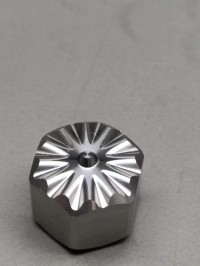


These accessories are essential components in healthcare settings and are often used in medical instruments, equipment, and devices. Some examples of medical device accessories made from stainless steel include:
Surgical Instruments:
Implantable Devices:
Medical Carts and Trolleys:
Endoscopy Accessories:
Radiology and Imaging Equipment:
Sterilization Baskets and Containers:
Dental Accessories:
Laboratory Equipment:
Stainless steel is preferred for medical device accessories because it is easy to clean and sterilize, resistant to corrosion, and can withstand repeated exposure to various chemical disinfectants and sterilization methods. Additionally, it is non-reactive with bodily fluids and tissues, making it suitable for implantable devices and instruments used in contact with the human body.
Different grades of stainless steel may be used for medical applications, with austenitic stainless steels (e.g., 316L) being a common choice due to their excellent corrosion resistance and biocompatibility. The choice of stainless steel grade may depend on the specific requirements of the accessory and the intended use in the medical field.